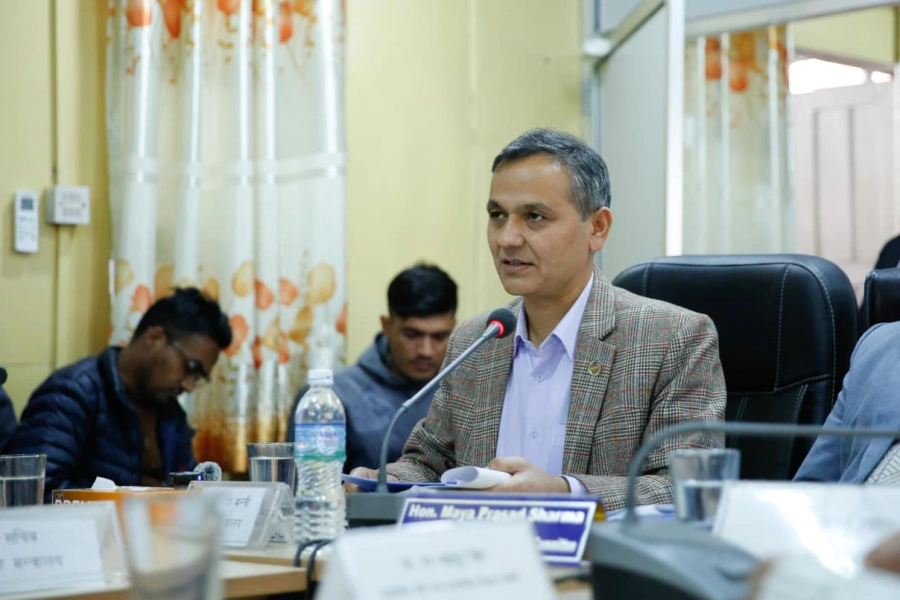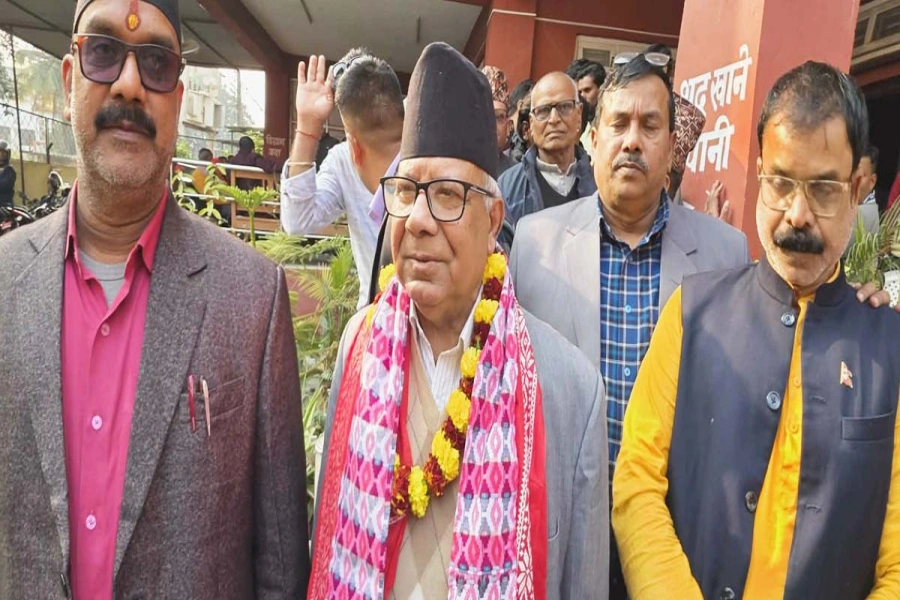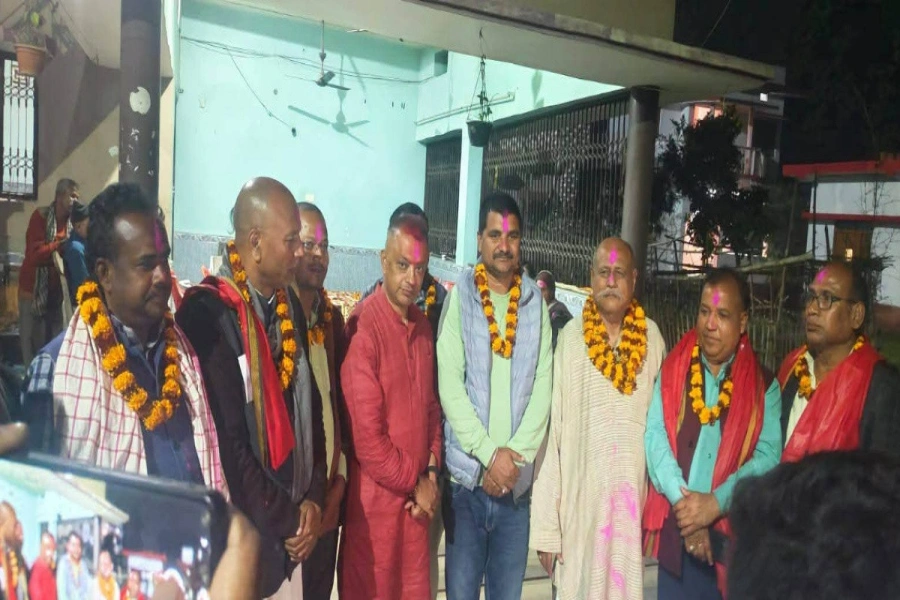Recent publication of the court verdict on Mr Govinda Raj Joshi, former minister and a powerful NC leader, is a reality.
A medical doctor will never get angry with a sick person (bhrastachari) visiting him for treatment; he has every right to get angry with the disease (bhrastachar) but not with the sick person. If you cannot differentiate between corruption and corrupt people, how would you fight corruption?
At a time, when Nepali media is rocked, one after another, by a series of corruption scandals, a narrative has been built that Prachanda Government collapsed because it was opening some big files or investigating some big scandals. One could also ask a question in the reverse direction: Could it be true, as it became clear of imminent downfall, the government pretended to investigate big scandals? These could have been used as media stunts or even as threats to quell down opposing voices.
There is also a converse argument given by Maoist leader, Mr Aman Lal Modi: The new coalition is formed to close down big files. There is also rumour that this is to swap one scandal (fake Bhutanese refugee) with the other (Giri-bandhu Tea Estate land scam)? Now, the NC leaders are claiming the real test of the coalition lies in how it proceeds with these investigations.
Corruption Collapsing Argument
Prachanda’s new partner, Mr. Ravi Lamichhane, RSP president, is so cock-sure, that he declared in the parliament, “the government collapsed within 24 hours after it planned to open three big files”. Those three big files will never be known to us. He also informed us of the government planning to form a high-level commission to investigate 25 big scandals. Probably, we will also never know the results of the Lamichhane chhanbin committee currently underway in the parliament. Out of mandated three months, it has less than a month to complete its assignment.
Reforming Anti-Corruption Legislations

As no one is buying his corruption collapsing argument, Prachanda is now switching his tone to say that his government has come out clean - leaving no traces of corruption behind. “We have won the battle of good governance. And after elections in 2084, we will sweep out corruption from the country”, this is what he explained to his followers. Is this a fair assessment of his government? Or a rationalization of his failures?
This is an important question as Nepali society is, currently, mired into the problems of identifying thulo chor from sano chor with deafening noises of jo chor usaiko thulo shor. Each party is vying to dig graveyards of corruption. And there is a deep sickening syndrome: “If everyone steals, why can’t we? Why are we being targeted when stealing is the norm?”
In another instance, Mr. Lamichhane could be heard claiming, “if his party could not do anything good, we have not done anything bad.” This resonates like saying: There were opportunities to steal, everyone is stealing and we too could have stolen something but we did not. How can you judge yourself on the grounds of “not stealing” when the very act of stealing is forbidden?
Here is PM Oli’s anti-corruption narrative: “I will neither indulge in corruption nor allow others to indulge in; and will not tolerate corruption.” However, he is committed to ending an absurd system where those taking decisions (risks) have to live with the fear of possible litigation while those not doing anything are being constantly rewarded. Who knows he may be experimenting on Mr. Kul Man Ghising to test his anti-corruption narrative? Is not it absurd to listen to him explaining that those who can afford to have a car be provided free parking space?
Fortunately or unfortunately, day in day out, we are being dished out narratives like these. The parties are doing this to justify their existence. Each spitting venom on the other with a “holier than thou” attitude.
The Double-Edged Sword
In the realm of corruption and anti-corruption literature, they are taken as a double-edged sword. With one edge, you can defend yourself and, with the other, you can strike your opponents. Many (corrupt) regimes in the world have survived and thrived because of corruption. Similarly, many of them have faltered because of corruption. The bribe money has dual functions to perform - in some instances it greases the squeaky wheels of bureaucracy (incentive function) and, in other cases, it has a detrimental effect on performance (punishment function). Now, there are many nuanced corruption studies, that is, how different forms of corruption can exert different kinds of impact on the economy and politics.
Punitive vs. Preventive
Since the last decade or so, the global anti-corruption movement has come to a standstill. That means, so much money poured into anti-corruption has been wasted. One factor behind this failure is excessive focus on punitive measures vis-a-vis preventive ones. Punitive measures are politically palatable, you can draw media attention, settle political scores, use as political vendetta, and by digging corruption graveyards you can present yourself to the public, doing something good, fast and visible. Preventive measures are, literally, invisible, effects can be observed only after a long pause, do not draw media attention and, hence, politically not palatable, feasible or desirable.
Digging corruption graveyards
Started first by RSP, as it declared in its manifesto “to bring to trial all corruption crimes committed at any point of history”, this is an overly ambitious objective. How do you dig into corruption crimes committed during the Rana and Shah regimes? The Maoist Party and RPP are no less behind. They have declared to investigate corruption crimes committed after 1990, that is, post-multiparty era. Hopefully, rajabadis are expecting to dig into corruption post FDR Nepal.
Where do you put your limited resources - in detecting past crimes or preventing future ones? Investigation into the past is useful to the extent of recovering stolen properties and as a deterrence measure. However, a sustainable anti-corruption drive must be a preventive one. Preventing future leakages is better than digging into unknown graveyards.
Remember a journo turning into a politician, once came up with a catchy slogan or rather, swearing words: bhrastachari lai kira paros (let the corrupt people rot). Corruption is a disease, a bodily malfunctioning while corrupted one is a sick person. A medical doctor will never get angry with a sick person (bhrastachari) visiting him for treatment; he has every right to get angry with the disease (bhrastachar) but not with the sick person. If you cannot differentiate between corruption and corrupt people, how would you fight corruption?
Another stupidity comes from Nepali Congress Party and also from this new coalition. It aims to establish good governance by controlling corruption. The causality is going from good governance to corruption control, not the other way round. As long as our leaders and policy makers are mired in this kind of stupidity, don’t expect anything good coming from them.
Narrative vs. Reality
The narratives I have written above are all about beliefs and perceptions. Recent publication of the court verdict on Mr Govinda Raj Joshi, former minister and a powerful NC leader, is a reality. The final verdict which came after 21 years of legal battle convicted him of illegally amassing property. The court sentenced him to 9 months in jail plus Rs 6.9 million as fine. This is what happens when you focus on punitive measures. Paradoxically, Mr Joshi is the one who tabled the anti-corruption bill in the parliament in 2002. When you juxtapose corruption and anti-corruption narratives going around with the reality happening in the court, you end up laughing.






































